Best Companion Plants To Grow With Corn
Best Companion Plants to Grow with Corn
Corn is a staple crop in many parts of the world, and for good reason. It's a delicious and versatile vegetable that can be enjoyed in a variety of ways. But did you know that there are certain plants that can help corn grow better? That's right, companion planting is a great way to improve the health and productivity of your corn crop.
In this blog post, we'll discuss the best companion plants for corn. We'll cover the benefits of companion planting, as well as some specific plant pairings that will help your corn thrive. So whether you're a seasoned gardener or just getting started, read on for some helpful tips!
What is Companion Planting?
Companion planting is the practice of planting certain plants together in order to benefit each other. Some plants can help to repel pests, attract beneficial insects, or improve the soil quality. By planting the right companion plants together, you can create a more balanced and productive garden.
Why Companion Plant with Corn?
Corn is a heavy feeder, so it benefits from being planted with nitrogen-fixing plants. Nitrogen-fixing plants, such as beans and peas, can help to improve the soil quality and provide corn with the nutrients it needs to grow.
In addition, corn can benefit from being planted with plants that attract beneficial insects. Beneficial insects, such as ladybugs and parasitic wasps, can help to control pests that can damage corn crops.
Some of the Best Companion Plants for Corn
Here are some of the best companion plants for corn:
- Beans: Beans are a great nitrogen-fixing plant to plant with corn. They can help to improve the soil quality and provide corn with the nutrients it needs to grow.

- Peas: Peas are another nitrogen-fixing plant that can benefit corn. They're also a good choice for companion planting because they grow well in the shade of corn stalks.
- Marigolds: Marigolds are a great way to repel pests from corn. They can help to control corn earworms, aphids, and other pests that can damage corn crops.
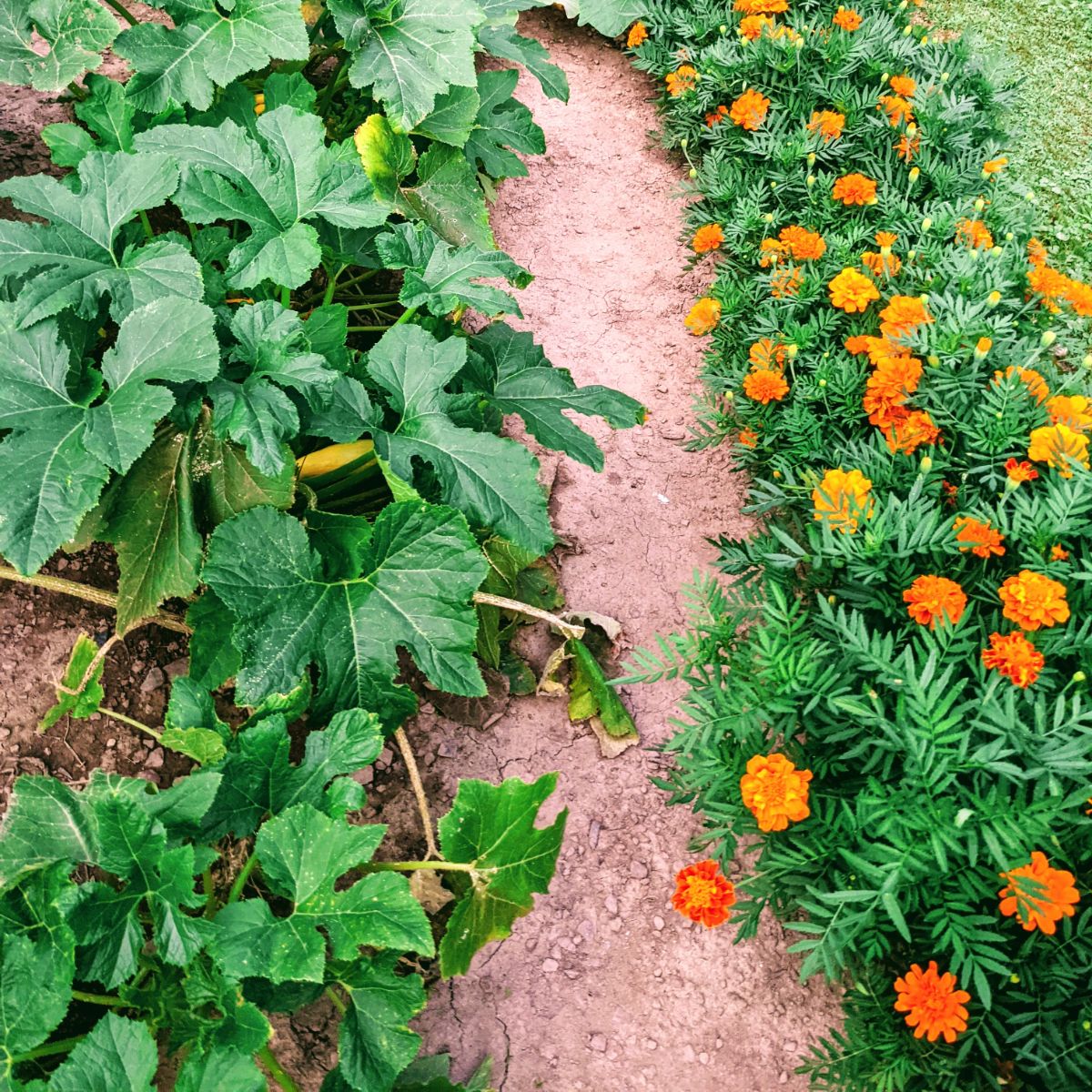
- Nasturtiums: Nasturtiums are another great way to repel pests from corn. They're also edible, so you can enjoy them in salads or sandwiches.
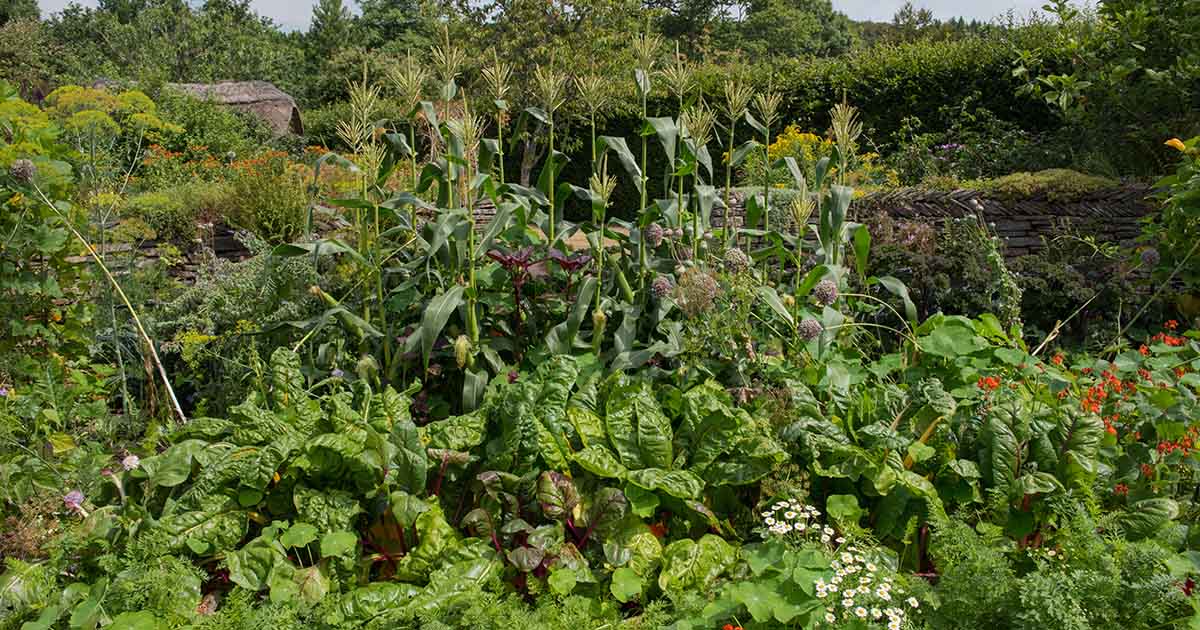
- Sunflowers: Sunflowers can help to provide shade for corn plants, which can help to keep the soil cool and prevent it from drying out. They can also help to attract beneficial insects.
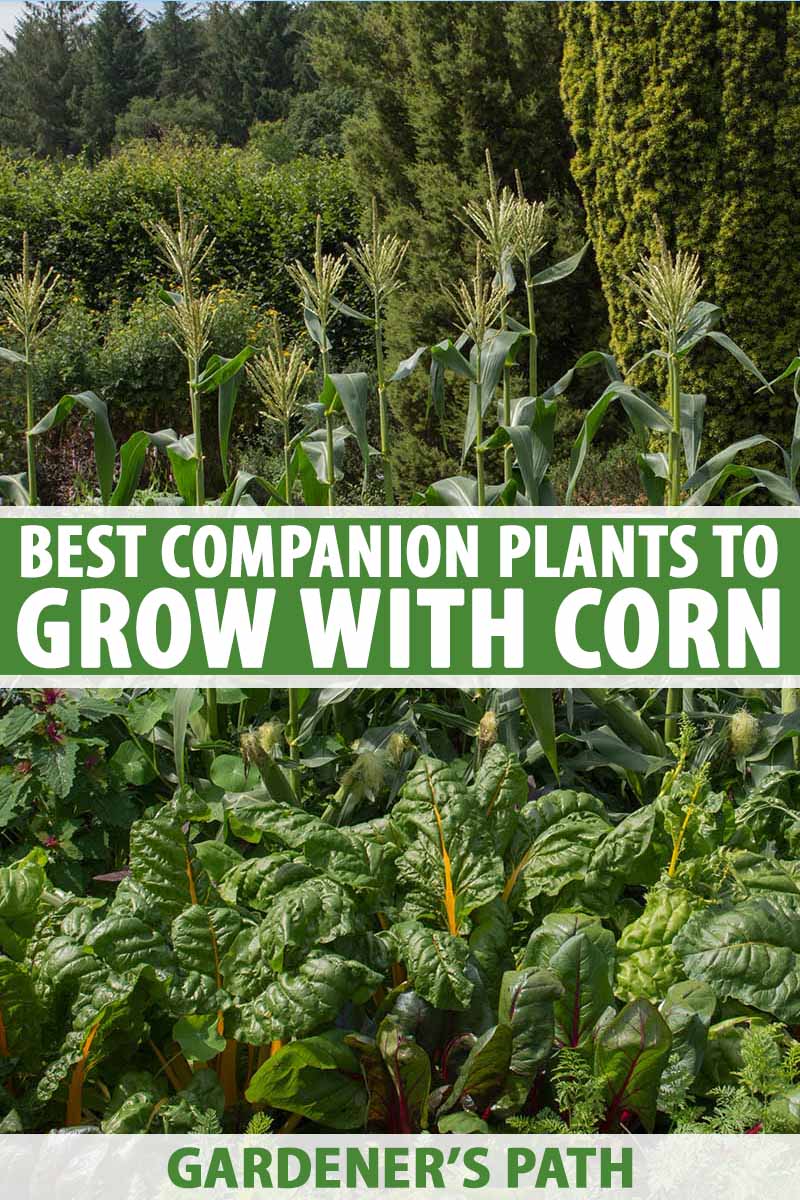
- Dill: Dill is a great companion plant for corn because it helps to repel aphids and other pests. It also attracts beneficial insects, such as ladybugs and parasitic wasps.
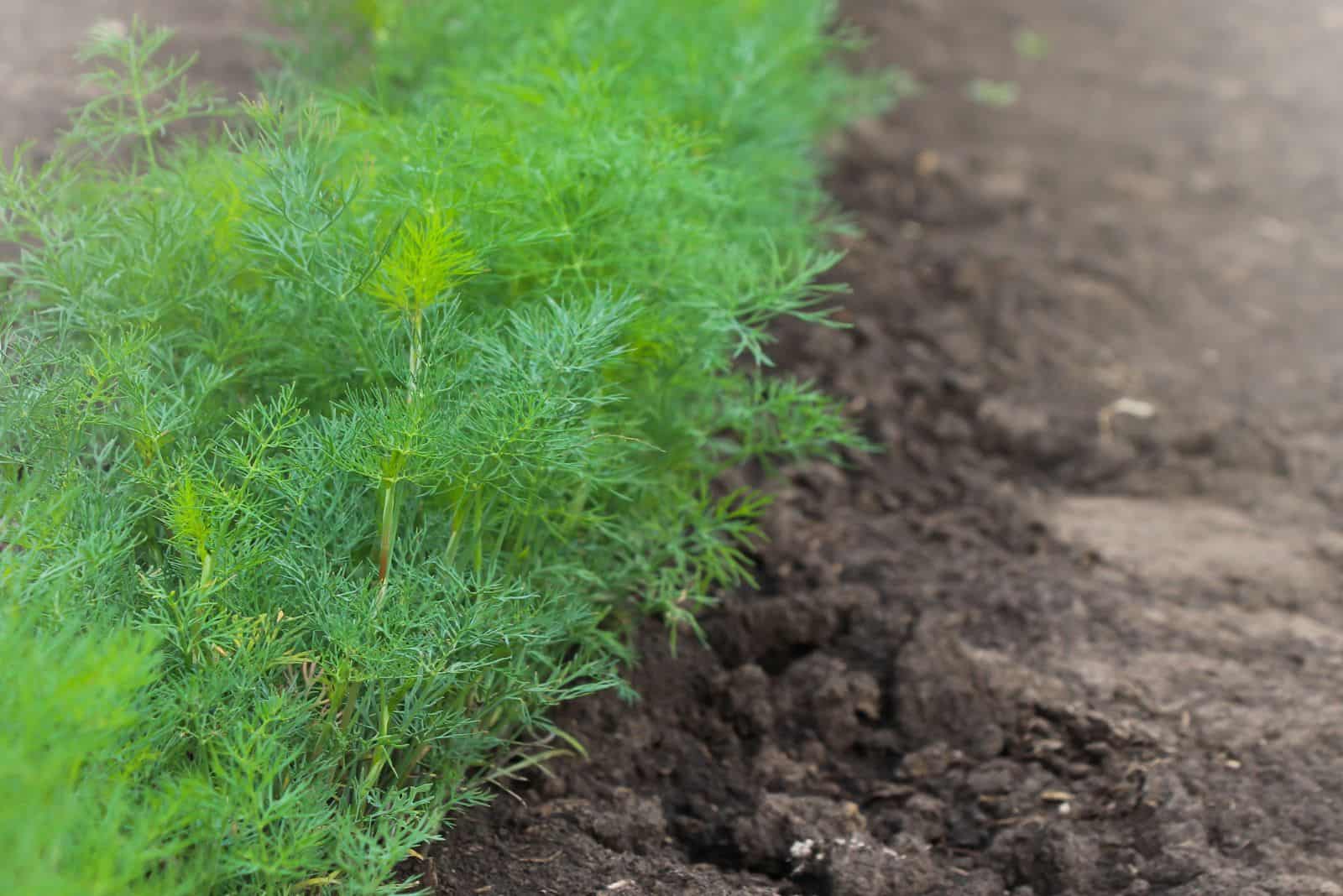
- Potatoes: Potatoes can help to improve the soil quality for corn. They also help to suppress weeds, which can compete with corn for water and nutrients.
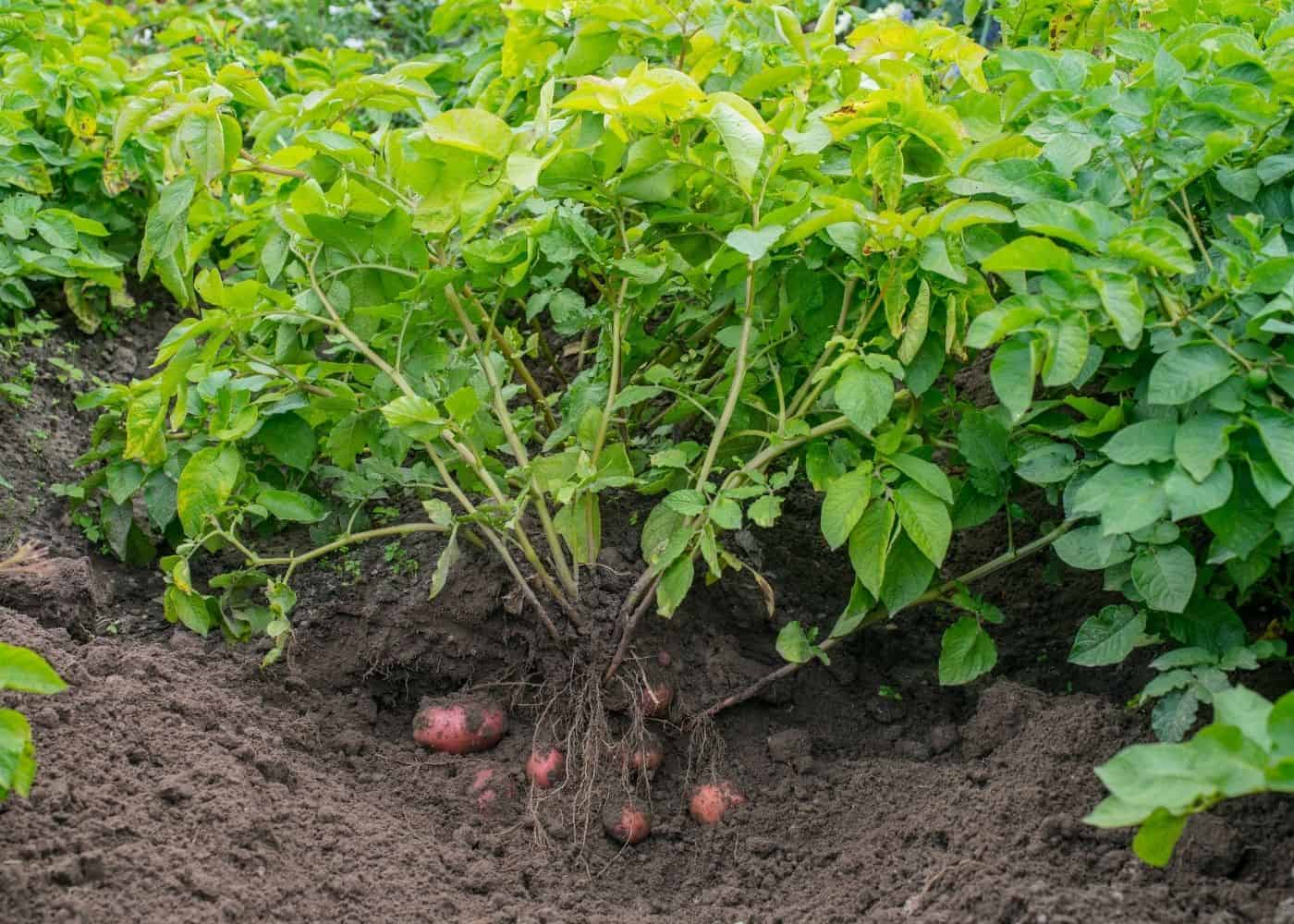
- Pumpkins: Pumpkins can help to suppress weeds and improve the soil quality for corn. They also provide shade for corn plants, which can help to keep the soil cool and prevent it from drying out.
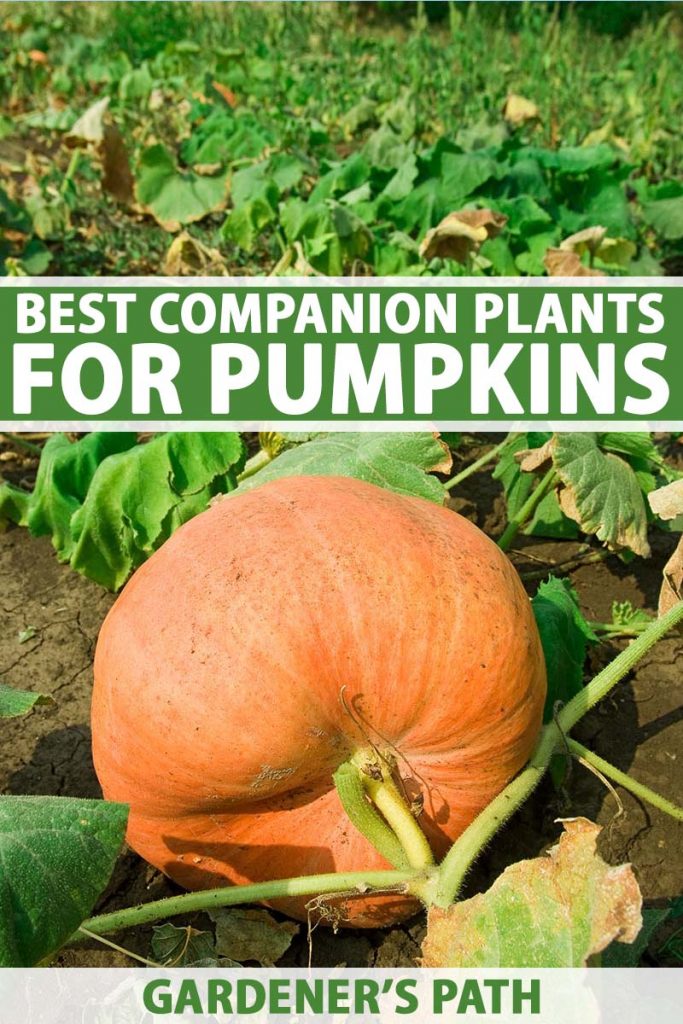
What to Avoid Planting Near Corn
There are a few plants that you should avoid planting near corn. These include:
- Brassicas: Brassicas, such as broccoli, Brussels sprouts, and cabbage, should not be planted near corn. Corn shades the brassicas too much, stunting their growth.

- Cucumbers: Cucumbers and corn compete for water and nutrients, so it's best to avoid planting them together.

- Melons: Melons and corn compete for water and nutrients, so it's best to avoid planting them together.

Conclusion
Companion planting is a great way to improve the health and productivity of your corn crop. By planting the right companion plants together, you can create a more balanced and productive garden.
So next time you're planning your corn crop, be sure to consider some of the companion plants listed above. You'll be glad you did!
Corn is a delicious and versatile vegetable that can be enjoyed in many different ways. But did you know that there are certain plants that can help corn grow better? These are called companion plants, and they can provide a number of benefits to corn, including:
- Attracting beneficial insects. Some companion plants, such as marigolds and nasturtiums, attract beneficial insects that prey on corn pests. This can help to keep your corn plants healthy and free of pests.
- Providing shade. Other companion plants, such as squash and cucumbers, can provide shade for corn plants. This can help to keep the soil moist and prevent weeds from growing.
- Fixing nitrogen. Some companion plants, such as beans and peas, are legumes that fix nitrogen in the soil. This can help to improve the fertility of the soil and provide corn plants with the nutrients they need to grow.
If you're looking to grow healthy and productive corn plants, I encourage you to do some research on companion planting. There are many different companion plants that can benefit corn, and the right combination of plants can make a big difference in the health and productivity of your corn crop.
For more information on companion plants for corn, I recommend visiting Gardenia Inspiration. This website has a wealth of information on companion planting, including a list of the best companion plants for corn.
FAQ of companion plant to corn
Question 1: What are some good companion plants for corn?
Answer: There are many good companion plants for corn, but some of the most popular include:
- Borage: Borage is a flowering plant that attracts beneficial insects, such as bees and ladybugs, which help to control pests. It also helps to improve the flavor of corn.
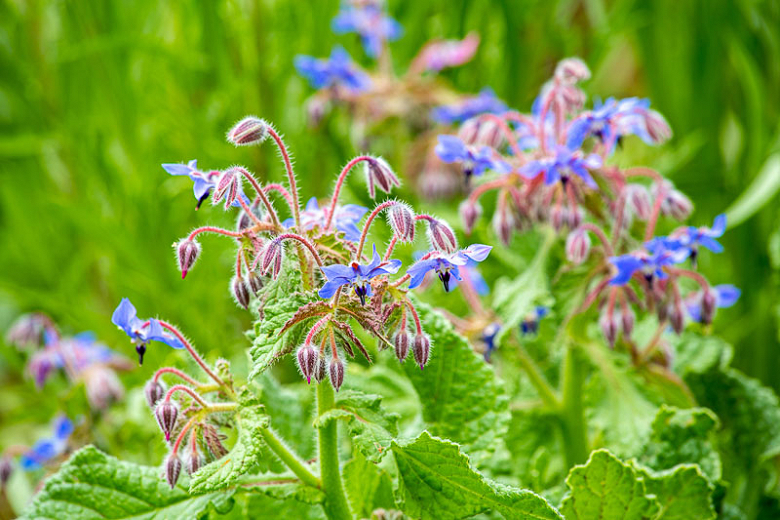
- Cucumber: Cucumbers help to suppress weeds and attract pollinators. They also benefit from the shade of corn plants.

- Dill: Dill helps to repel pests, such as aphids and spider mites. It also attracts pollinators and improves the flavor of corn.
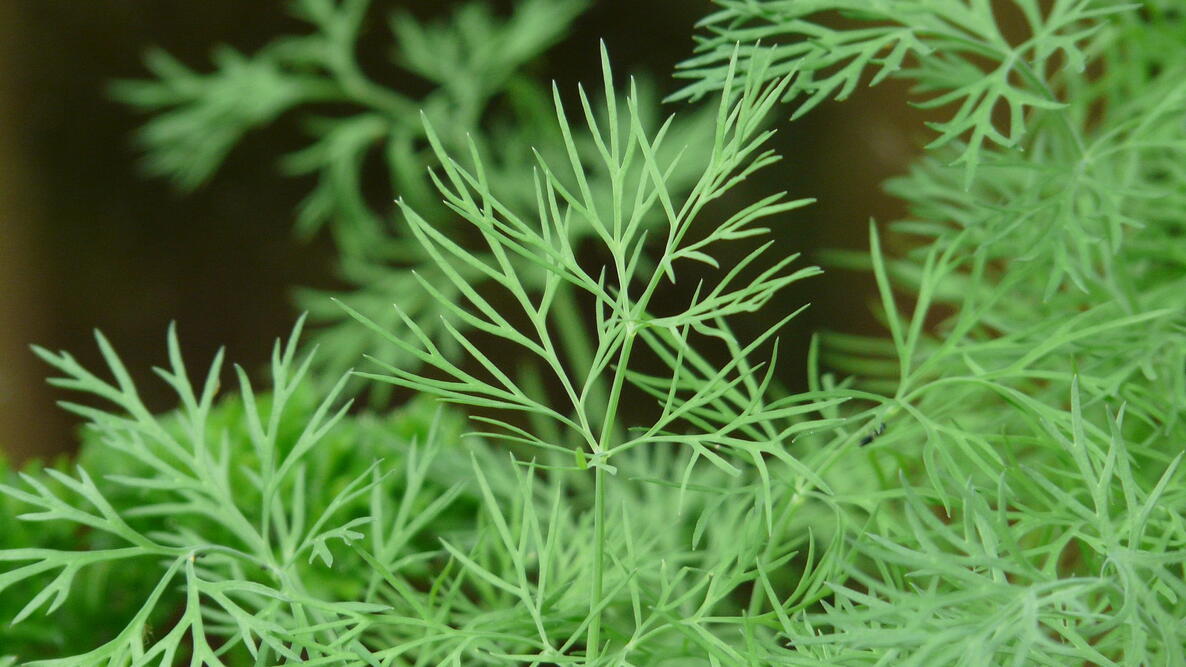
- Marigolds: Marigolds help to repel pests, such as nematodes and corn borers. They also improve the flavor of corn.
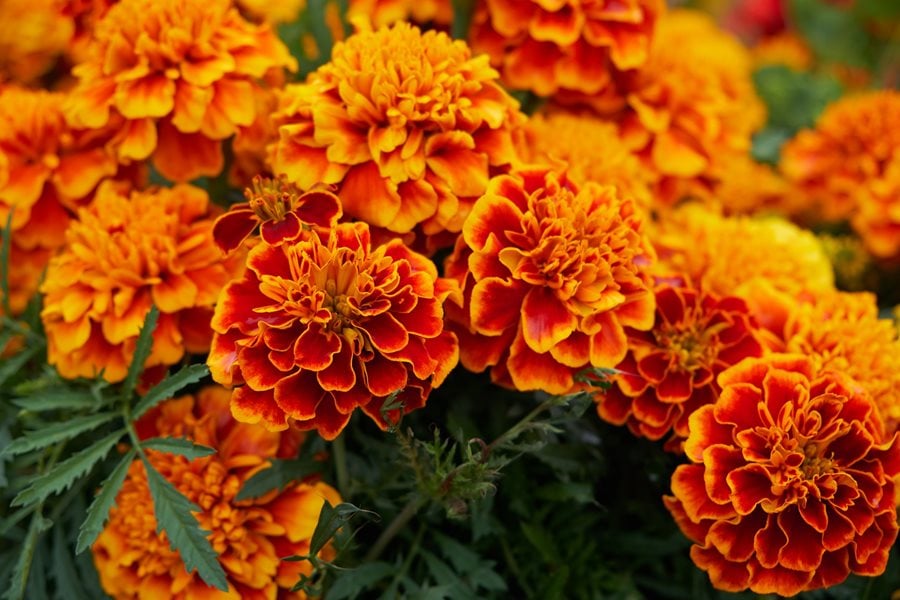
- Pole beans: Pole beans help to provide shade for corn plants, which can help to protect them from pests and diseases. They also benefit from the nitrogen that corn plants release into the soil.
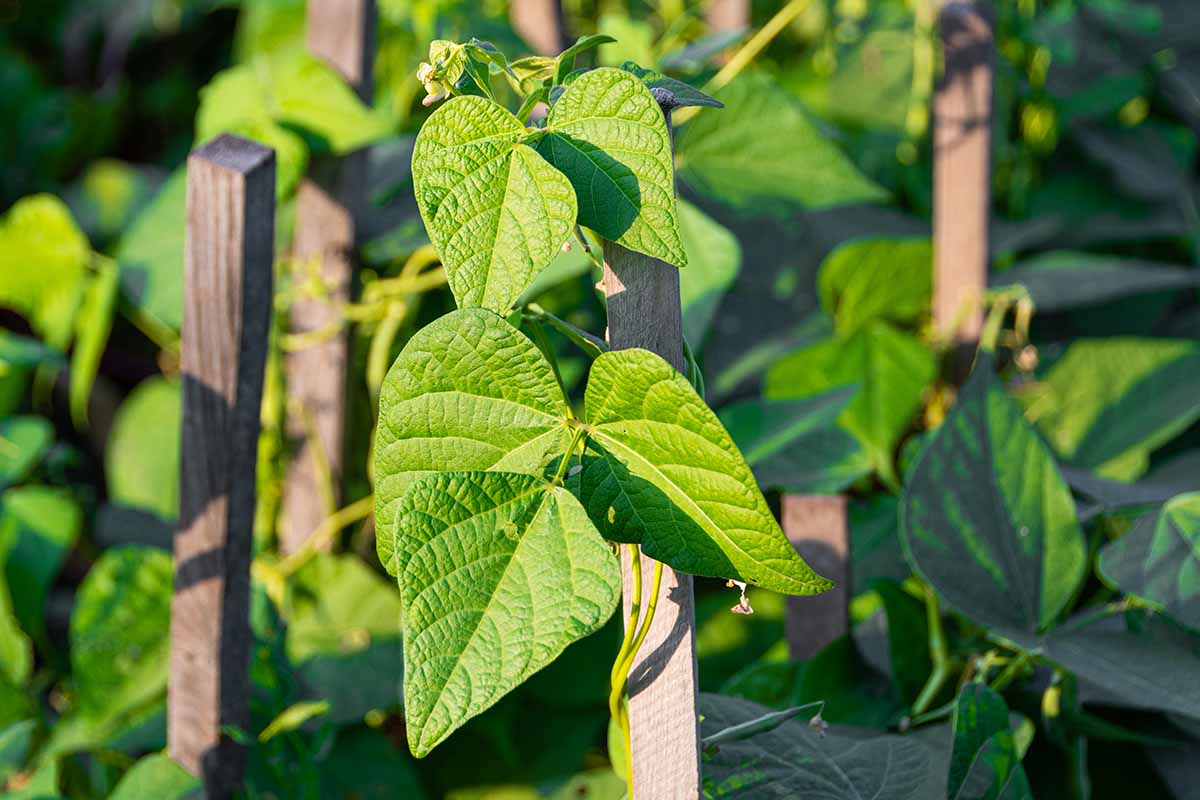
Question 2: What are some plants that should not be planted near corn?
Answer: Some plants that should not be planted near corn include:
- Tomatoes: Tomatoes and corn compete for nutrients, so it is best to plant them in separate areas.
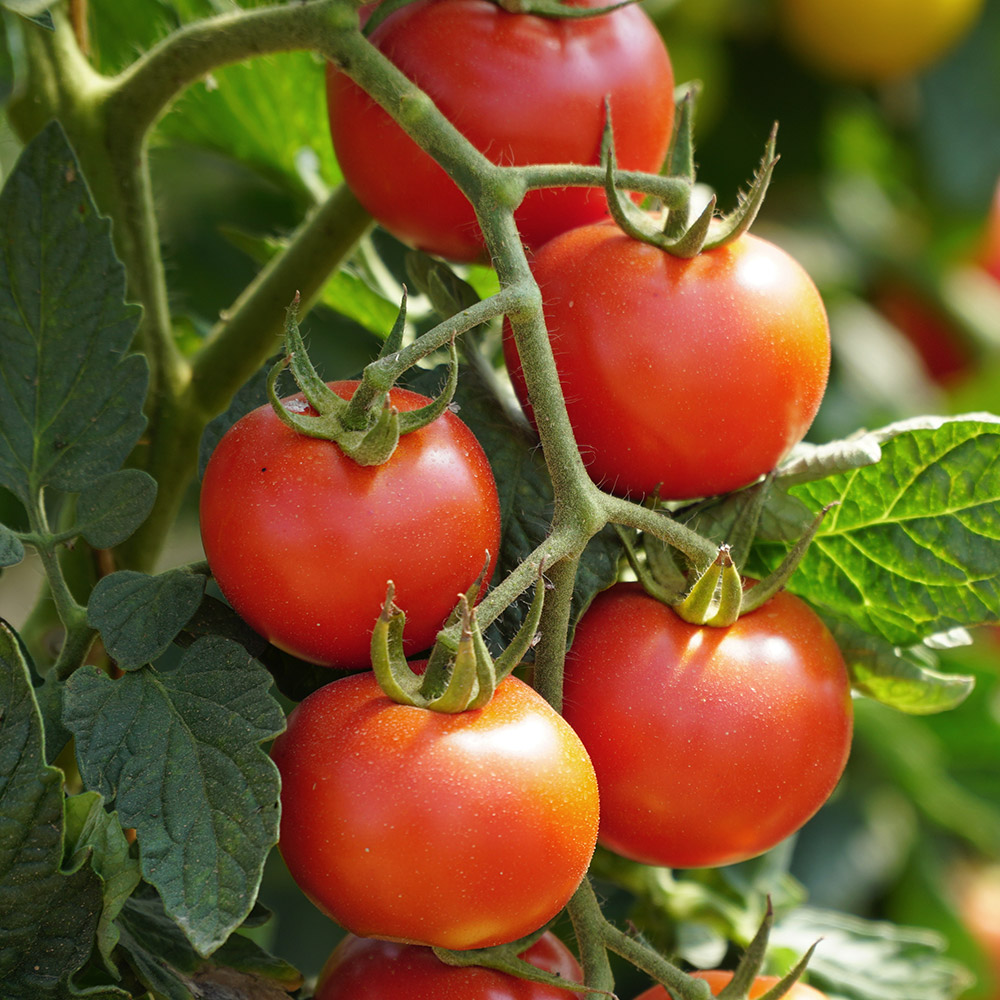
- Potatoes: Potatoes and corn can both be susceptible to the same pests and diseases, so it is best to plant them in separate areas.

- Cabbage family plants: Cabbage family plants, such as broccoli, cauliflower, and Brussels sprouts, can attract pests that can also damage corn.

- Melons: Melons and corn compete for water, so it is best to plant them in separate areas.
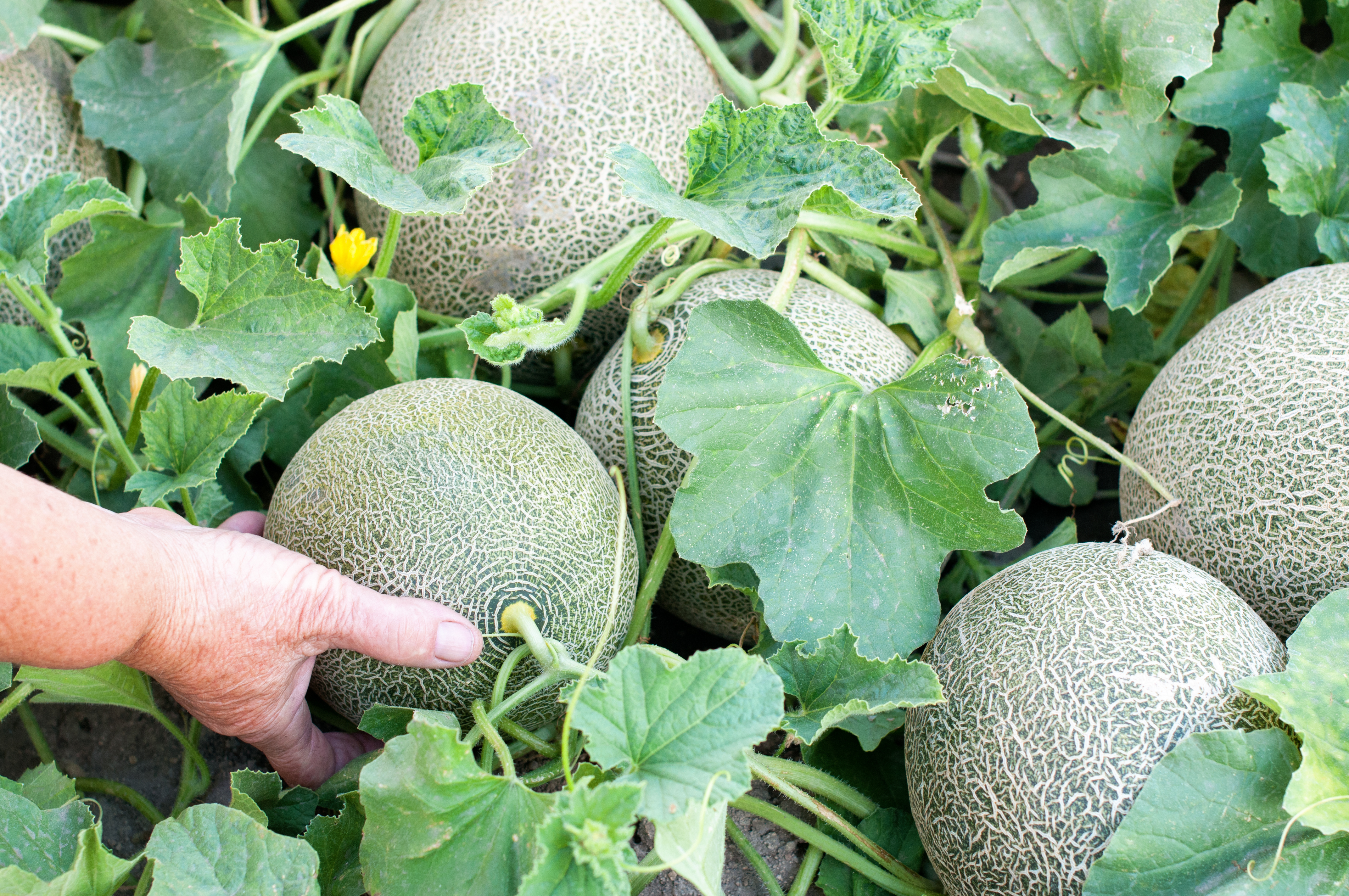
Question 3: How far apart should companion plants be planted from corn?
Answer: The distance that companion plants should be planted from corn depends on the specific plant. However, as a general rule, companion plants should be planted at least 12 inches away from corn plants.
Question 4: What are the benefits of companion planting with corn?
Answer: There are many benefits to companion planting with corn, including:
- Improved pollination: Companion plants can attract pollinators, which help to improve pollination of corn plants. This can lead to larger, healthier corn cobs.
- Suppression of pests and diseases: Companion plants can help to suppress pests and diseases that can damage corn plants. For example, marigolds help to repel nematodes, which can damage corn roots.
- Improved soil health: Companion plants can help to improve soil health by adding nutrients and organic matter to the soil. This can benefit corn plants and other plants in the garden.
Question 5: What are some tips for companion planting with corn?
Answer: Here are some tips for companion planting with corn:
- Do your research: Before you plant any companion plants with corn, it is important to do your research to make sure that the plants will not compete with each other.
- Plant in blocks: Instead of planting companion plants in rows, plant them in blocks. This will help to create a more diverse ecosystem in your garden, which can benefit all of the plants.
- Water regularly: Companion plants need to be watered regularly, just like corn plants.
- Monitor your plants: Be sure to monitor your plants regularly for signs of pests or diseases. If you see any problems, take action immediately.
Image of companion plant to corn
- Winter squash: Winter squash, such as butternut squash, acorn squash, and pumpkin, are great companion plants for corn. They help to suppress weeds and improve soil quality.

- Pole beans: Pole beans, such as green beans and lima beans, also make good companion plants for corn. They help to attract pollinators and provide shade for the corn.

- Radishes: Radishes are a short-lived crop that can be planted between rows of corn. They help to deter pests and improve soil aeration.

- Dill: Dill is a herb that can be planted near corn to help attract pollinators and deter pests. It also helps to improve the flavor of corn.

- Marigolds: Marigolds are flowers that can be planted near corn to help deter pests. They release a scent that repels insects, such as corn earworms and aphids.

Post a Comment for " Best Companion Plants To Grow With Corn"